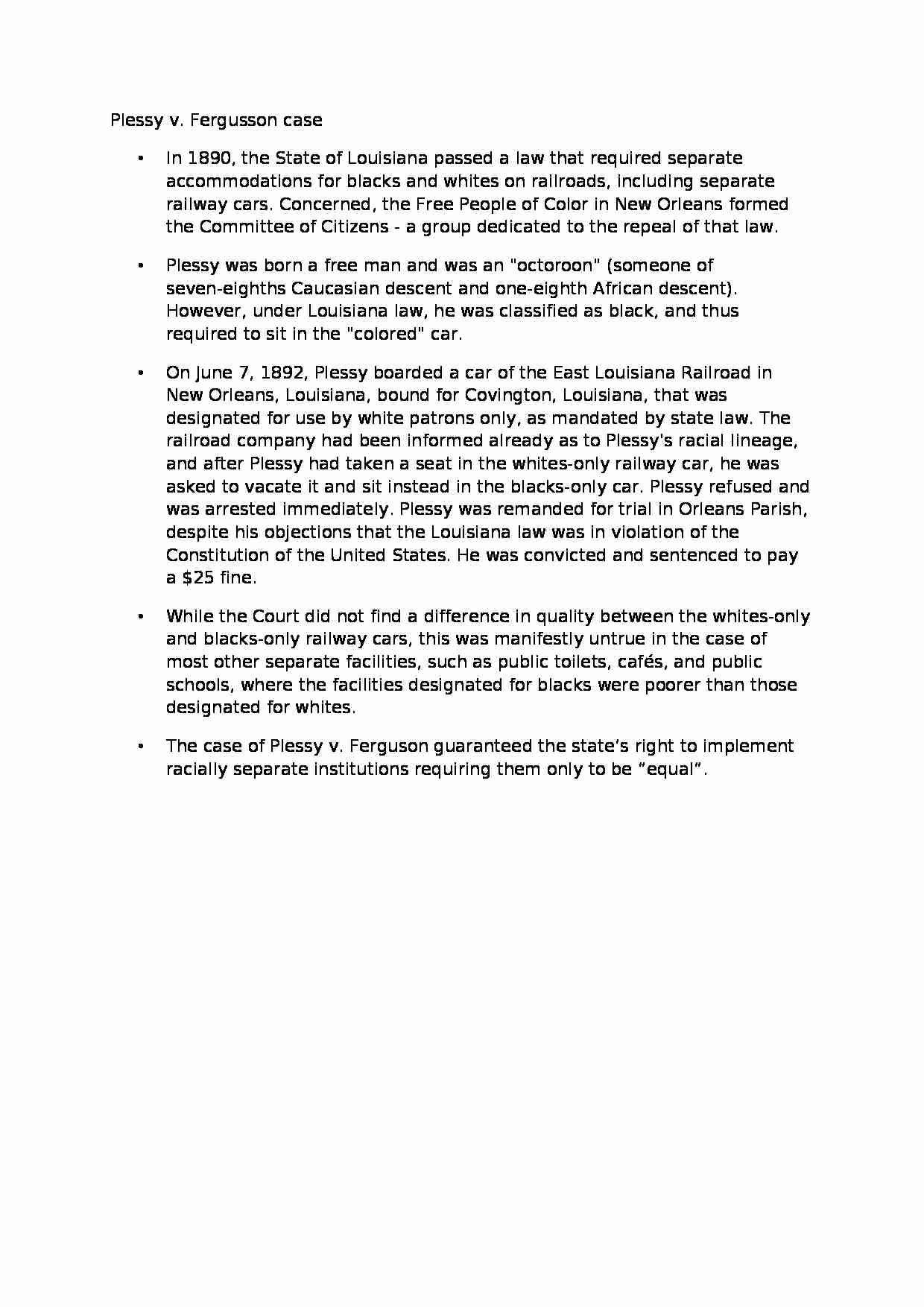
Plessy v. Fergusson case
In 1890, the State of Louisiana passed a law that required separate accommodations for blacks and whites on railroads, including separate railway cars. Concerned, the Free People of Color in New Orleans formed the Committee of Citizens - a group dedicated to the repeal of that law. Plessy was born a free man and was an "octoroon" (someone of seven-eighths Caucasian descent and one-eighth African descent). However, under Louisiana law, he was classified as black, and thus required to sit in the "colored" car. On June 7, 1892, Plessy boarded a car of the East Louisiana Railroad in New Orleans, Louisiana, bound for Covington, Louisiana, that was designated for use by white patrons only, as mandated by state law. The railroad company had been informed already as to Plessy's racial lineage, and after Plessy had taken a seat in the whites-only railway car, he was asked to vacate it and sit instead in the blacks-only car. Plessy refused and was arrested immediately. Plessy was remanded for trial in Orleans Parish, despite his objections that the Louisiana law was in violation of the Constitution of the United States. He was convicted and sentenced to pay a $25 fine.
While the Court did not find a difference in quality between the whites-only and blacks-only railway cars, this was manifestly untrue in the case of most other separate facilities, such as public toilets, cafés, and public schools, where the facilities designated for blacks were poorer than those designated for whites. The case of Plessy v. Ferguson guaranteed the state's right to implement racially separate institutions requiring them only to be “equal”.
... zobacz całą notatkę



Komentarze użytkowników (0)